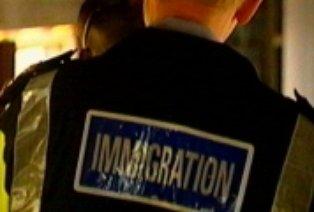Ethnic profiling is unconstitutional and breaches human rights law

That one should ascribe collective negative stereotypes to an entire group of people because of the actions of a few is well accepted as damaging and undesirable. However the Irish state is directly and indirectly involved in this practice through facilitation of the practice of ethnic profiling.
Ethnic profiling involves targeting people for the purposes of security and public safety while relying on stereotypes about ethnicity such as colour, nationality, religion rather than on reasonable suspicion.
Irish people of a certain age will be acutely aware of the damaging impact ethnic profiling had on Irish people living and travelling to the UK during the 1970's and 80's. Being constantly singled out for extra scrutiny, unwarranted detentions and false accusations fuelled racism and hostility towards the Irish community. It has been documented that over 80% of the Irish held under the UK Terrorism Act were released without charge. Essentially they were being arrested simply for being Irish.
International research has since proven that ethnic profiling is not an effective counter terrorism or security technique. There are numerous examples of people involved in terrorist activities passing under the radar despite being subjected to profiling checks which relied on ethnic indicators.
Migrant Rights Centre Ireland recently conducted a small scale study on the practice of ethnic profiling in Ireland. Although a limited study the practice of ethnic profiling was observed on trains, buses and on the street.
Immigration officers boarded a number of trains and buses on the Dublin/Belfast route and an obvious focus on people who are Black, wore head dress and spoke with non Irish accent was noted. People of an identifiable ethnicity begging on O' Connell St were moved on while others were left alone.
One person described being taken off the Dublin/Belfast train because he did not have his passport with him. He had photo ID proving his identity and legal status. He was also able to demonstrate that he was a regular traveller to Dublin. Several Guards physically manhandled him off the train and kept him in a cell until they were contacted by his employer. This incident had a profound impact on this man and his family. He does not see the police as being there to protect him and is very angry.
Many people who participated in our study 'Singled Out' described similar feelings of anger, frustration and embarrassment. The constant assumption of guilt creates feelings of alienation and is in danger of leading to a 'siege mentality'. The impact of children and young people was summed up well by a Black Irish citizen occasionally targeted for ID checks 'There will be second and third generation Irish citizens and it will be divisive; it will cause bigger problems down the road...'
Irish citizens are not required to carry ID, yet Irish immigration legislation states that 'non nationals' have to present ID on demand. The High Court last Friday ruled that Section 12 of the Immigration Act 2004 which provides for this rule is unconstitutional. How is a Guard or Immigration officers to know who and who isn't a 'non national'? In practice they would appear to be making judgements on the basis of colour, accent and appearance.
In 2009 the UN Human Rights Committee found that police identity checks motivated by race or ethnicity run counter to the international human right to nondiscrimination. Ireland is therefore most likely in breach of international and European human rights legislation.
Members of the general public we spoke to in the course of this study assumed people whose ID was checked and taken off trains and buses were undocumented or had done something wrong. The creation of a 'them and us' mentality is clearly damaging and counterproductive to a pluralist and inclusive society.
Maintaining good community relations is now considered to be essential in maintaining public security and necessary for effective law enforcement. Building trust and cooperation through constructive relationship building is considered by the experts as far more productive and effective than the traditional 'stop and search' methods.
It is important that the Guards do their job well and this obviously includes being able to identify and question people they believe are acting suspiciously. However the physical and ethnic characteristics of people targeted cannot be considered indicators for 'reasonable suspicion' and cannot serve as justification for identity checks.
Some may think that ethnic profiling is a 'necessary evil' in the interests of crime and security control. However the evidence is mounting that the costs outweigh the benefits and the long term societal damage including racism is something that makes it increasingly unacceptable.
The fact that profiling which relies on ethnic identifers is considered illegal by international human rights bodies should spur the government into immediate action to address this anomaly in our own law. All public officials involved in public security and law enforcement must be held accountable for their actions in the interest of a transparent and functioning democracy. Victims must have speedy access to complaints mechanisms and we should be able to measure the true extent of profiling.
In order to create an Ireland that respects and protects both the individual and the communities we all identify with, it is fundamental that every attempt is made, especially on the part of the institutions of government to reject the concept of collective suspicion and pursue an approach where those who break the law are viewed as exceptions and not representatives of the communities they belong to.
'Singled Out' An Exploratory study on ethnic profiling in Ireland and its impact on migrant workers and their families can be accessed at www.mrci.ie
Siobhán O' Donoghue is Director of the Migrant Rights Centre Ireland
